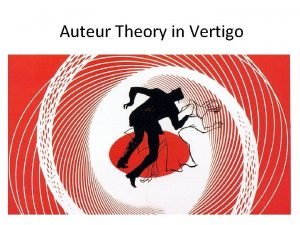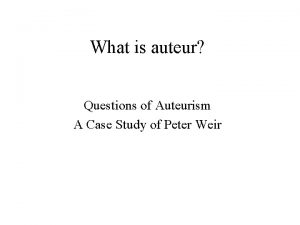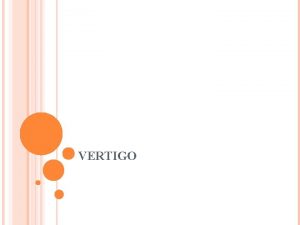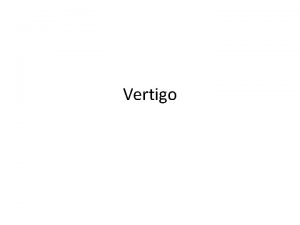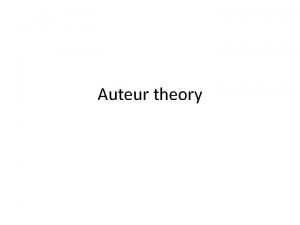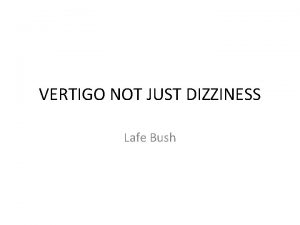Auteur Theory in Vertigo Auteur Theory Auteur theory






- Slides: 6

Auteur Theory in Vertigo

Auteur Theory Auteur theory, theory of filmmaking in which the director is viewed as the major creative force in a motion picture. Arising in France in the late 1940 s, the auteur theory—as it was dubbed by the American film critic Andrew Sarris—was an outgrowth of the cinematic theories of André Bazin and Alexandre Astruc. A foundation stone of the French cinematic movement known as the nouvelle vague, or New Wave, theory of director-as-author was principally advanced in Bazin’s periodical Cahiers du cinéma (founded in 1951). Two of its theoreticians—François Truffaut and Jean-Luc Godard—later became major directors of the French New Wave. The auteur theory, which was derived largely from Astruc’s elucidation of the concept of caméra-stylo (“camera-pen”), holds that the director, who oversees all audio and visual elements of the motion picture, is more to be considered the “author” of the movie than is the writer of the screenplay. In other words, such fundamental visual elements as camera placement, blocking, lighting, and scene length, rather than plot line, convey the message of the film. Supporters of the auteur theory further contend that the most cinematically successful films will bear the unmistakable personal stamp of the director.

Hitchcock is one of the first names to pop up when looking into the Auteur Theory. What makes Hitchcock an Auteur is that he uses styles in his films in which if it was saw in another film the viewers would instantly know that he directed it, because he always sticks to his unique styles. He was known to collaborate with the same people when making many of his films, such as using the composer Bernard Herman who helped create the sound to Psycho, North by Northwest and Vertigo. By collaborating with all the people he has worked with previously he is creating a consistency within his filmography which could be necessary for auteur-ism.

Summary of the main ideas of Vertigo appears to be a regular romance film, but once you look at the film from a film makers perspective you realize that it has themes of psychological and emotional distress which is kind of Hitchcock’s trend when making films. Vertigo is not the only mind bending film with a non-linear plot another examples include Psycho (1960) and Strangers on a Train (1951).

Auteur Theorists Auteur theory somewhat discovered by François Truffaut as he was the first to really look into it as a method of film making. Auteur theory was heavily looked at and developed a few years later in the United States through the writings of Andrew Sarris used auteur theory as a way to further the analysis of what he defines as serious pieces of art through the study of legendary directors and their films that theory is attached to. François Truffaut

Auteur Theory in Vertigo An example of the Auteur Theory is Alfred's cameo appearances that he frequently does in his own movies which proves the auteur theory as he adds him self in his film which creates a unique stamp. Hitchcock films have a similar tend as well which deals with psychological or emotionally pieces, vertigo is an example of this as its plot is both of the two as the main character is dealt with events that mess with his mental state, the story also has a sub-plot romance which after the love of his life “dies” he becomes so emotional that he begins to experience psychological torment. Again this is one of Hitchcock motifs, Hitchcock likes to explore the human mind, what makes us tick as individuals, he also messes around with theory that we are all crazy and it just takes one bad day for us to snap.
